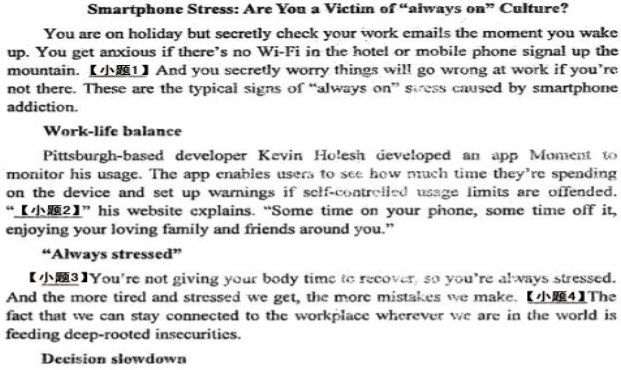题目内容
In modern society there is a great deal of argument about competition. Some value it highly, believing that it is responsible for social progress and prosperity; others say that competition is bad; that it sets one person against another; that it leads to unfriendly relationship between people.
I have taught many children who held the belief that their self-worth relied on how well they performed at tennis and other skills. For them, playing well and winning are often life-and-death affairs. In their single-minded pursuit of success, the development of many other human qualities is sadly forgotten.
However, while some seem to be lost in the desire to succeed, others take an opposite attitude. In a culture which values only the winner and pays no attention to the ordinary players, they strongly blame competition. Among the most vocal are youngsters who have suffered under competitive pressures from their parents or society. Teaching these young people, I often observe in them a desire to fail. They seem to seek failure by not trying to win or achieve success. By not trying, they always have an excuse: “I may have lost, but it doesn’t matter because I really didn’t try.” What is not usually admitted by themselves is the belief that if they had really tried and lost, that would mean a lot. Such a loss would be a measure of their worth. Clearly, this belief is the same as that of the true competitors who try to prove themselves. Both are based on the mistaken belief that one’s self-respect relies on how well one performs in comparison with others. Both are afraid of not being valued. Only as this basic and often troublesome fear begins to dissolve can we discover a new meaning in competition.
1.What does this passage mainly talk about?
A. Competition helps to set up self-respect.
B. Opinions about competition are different among people.
C. Competition is harmful to personal quality development.
D. Failures are necessary experiences in competition
2.Why do some people favor competition according to the passage?
A. It pushes society forward.
B. It builds up a sense of duty.
C. It improves personal abilities.
D. It encourages individual efforts.
3.What is the similar belief of the true competitors and those with a desire to fail ?
A. One’s worth lies in his performance compared with others.
B. One’s success in competition needs great efforts.
C. One’s achievement is determined by his particular skills.
D. One’s success is based on how hard he has tried.
4.Which point of view may the author agree to?
A. Every effort should be paid back.
B. Competition should be encouraged.
C. Winning should be a life-and-death matter.
D. Fear of failure should be removed in competition.
 名校课堂系列答案
名校课堂系列答案


